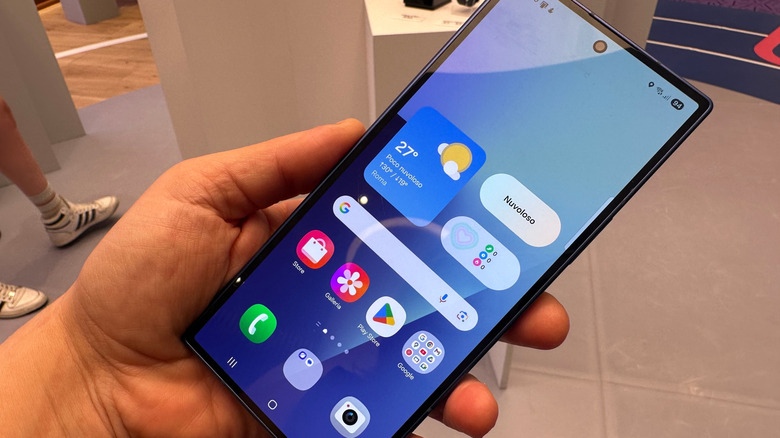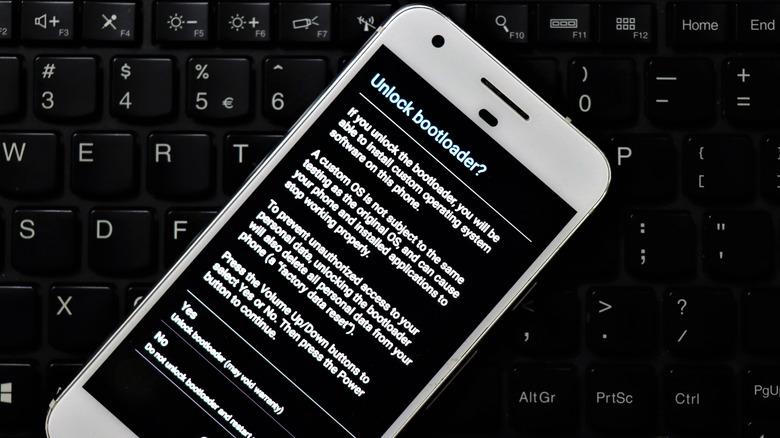Some Android Phones Are Becoming More Like iPhones In One Crucial Way
For years, Android users have knocked iOS for being a "walled garden," with the iPhone locking users into Apple's ecosystem and limiting how far they can stray outside of the company's guidelines. While Android has long offered a more customizable and personalized experience — including a way to completely alter the core operating system by installing custom ROMs — it seems the time of unparalleled customization for Android users may be coming to an end, though only on some devices.
Samsung appears to have removed the option to unlock the bootloader in the latest beta versions of One UI 8, which is Samsung's user interface for Android 16. The new reports suggest that the code for unlocking the bootloader — which gives users the ability to load unofficial software onto the device — has vanished in the latest One UI 8 betas.
While some hoped that this move might just be temporary, a dive into the code of the One UI 8 beta by a user on the XDA forums suggests that it will likely be a permanent change, essentially letting Samsung create its own "walled garden" in the same way Apple has. And Samsung isn't the only company doing it. OnePlus recently announced that users of its smartphones in China would require approval before they could unlock their bootloaders, and that requirement has been active for U.S. customers purchasing OnePlus devices from T-Mobile for some time.
What this means for the future of Android
While the ability to unlock the bootloader has been a staple of the Android operating system for years, companies are now noting that having an unlocked bootloader can actually make a device less secure. There's also the fact that unlocking the bootloader and then subsequently messing around with the kernel or ROM files can negatively impact a device.
When I first bought an Android phone, I flashed custom ROMs, and while the process was usually easy to follow — and sometimes even automated — it also carried the risk of bricking my device if done incorrectly. And some devices, including Samsung's, already weren't playing very nicely with unlocked bootloaders due to the built-in security features they offer.
While the removal of the ability to unlock the bootloader does limit customization, it also ensures that your device remains secure. That said, that bullet point hasn't always been especially convincing when arguing in favor of Apple's walled garden approach, and some Android fans are disheartened to see the control being taken from them. At the moment, it's unclear just how many Android manufacturers will adopt this stance, but considering one of the biggest Android manufacturers, Samsung, is adopting it for newer devices like the Z Flip 7, don't be surprised if others follow suit.

